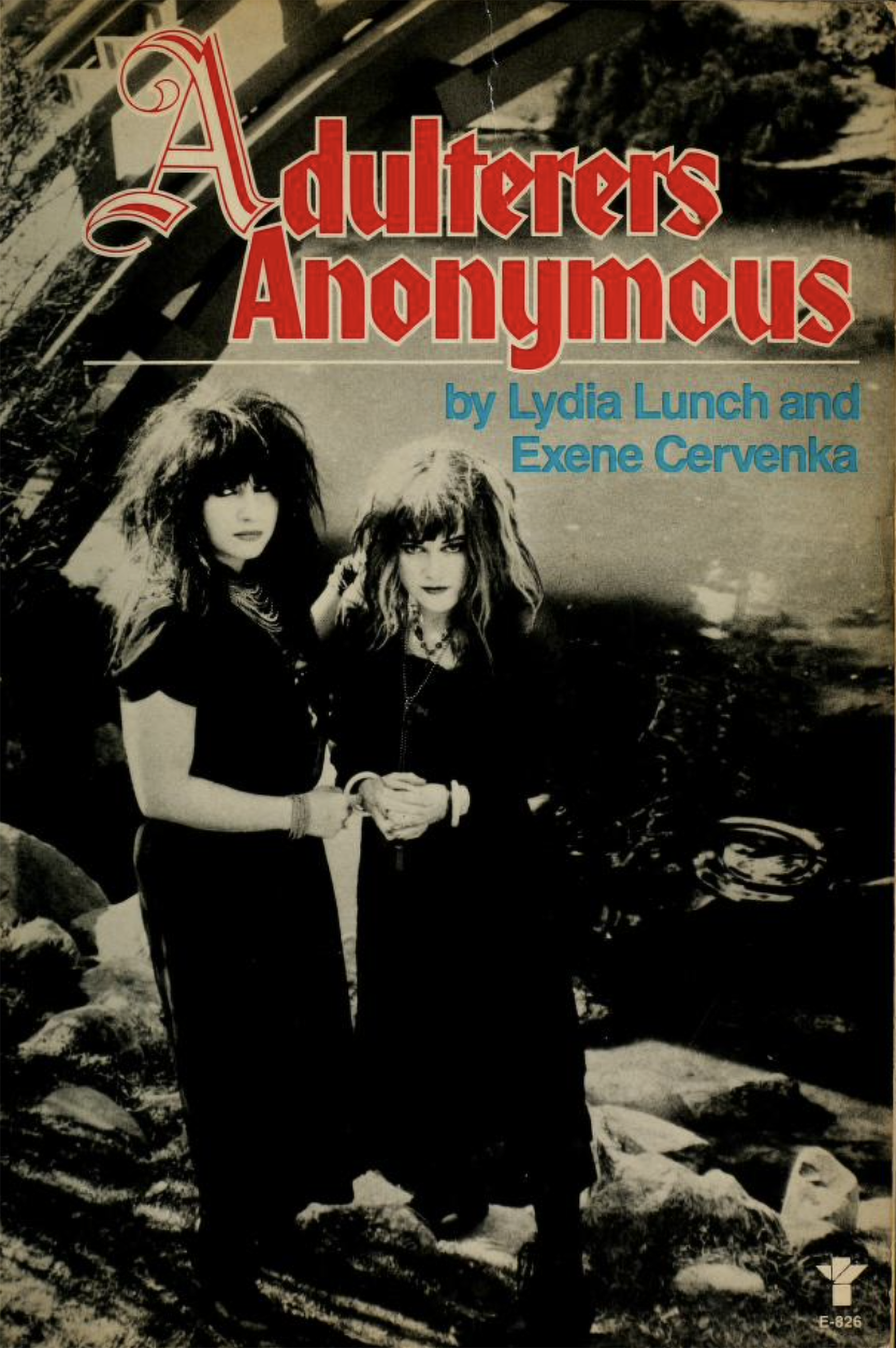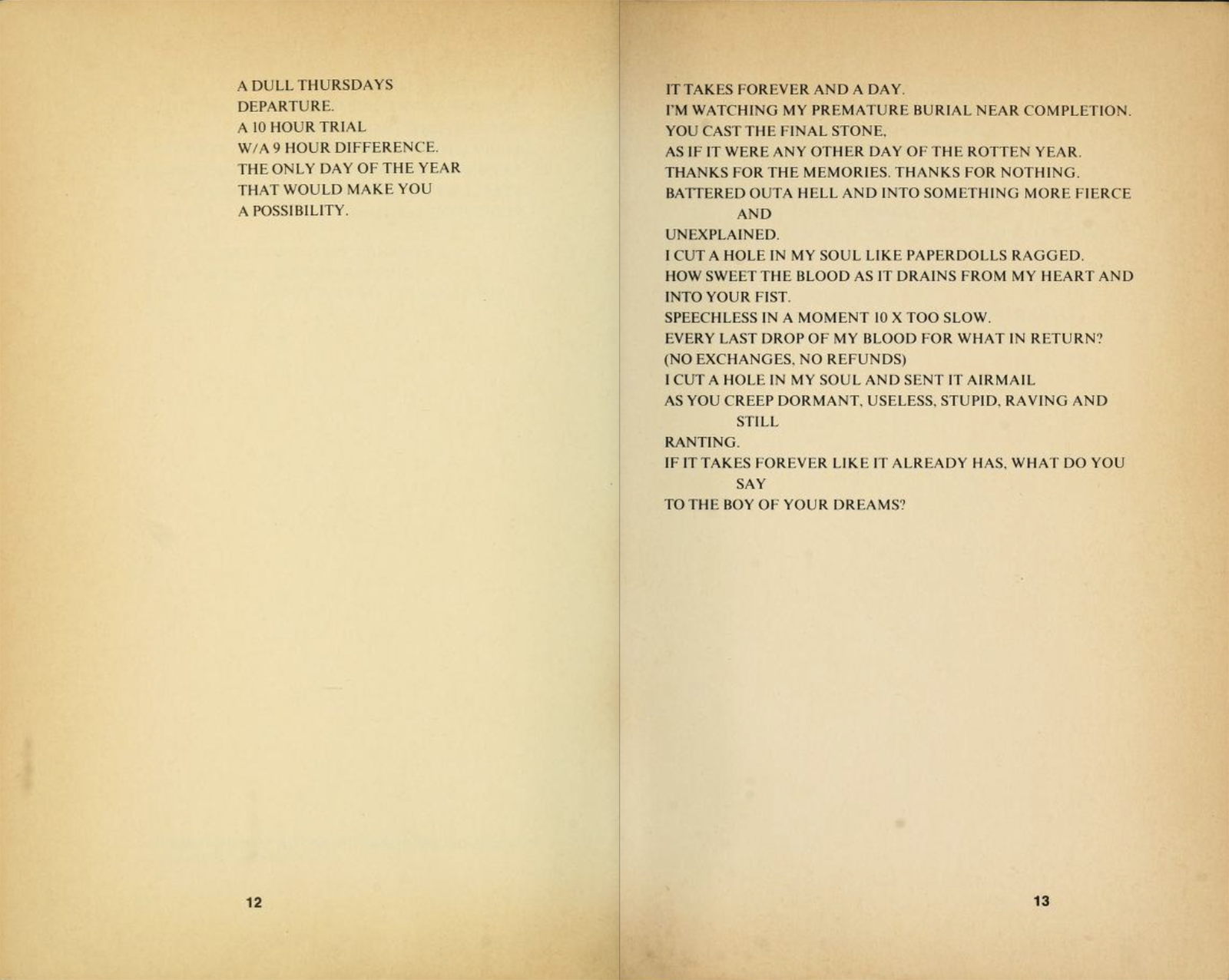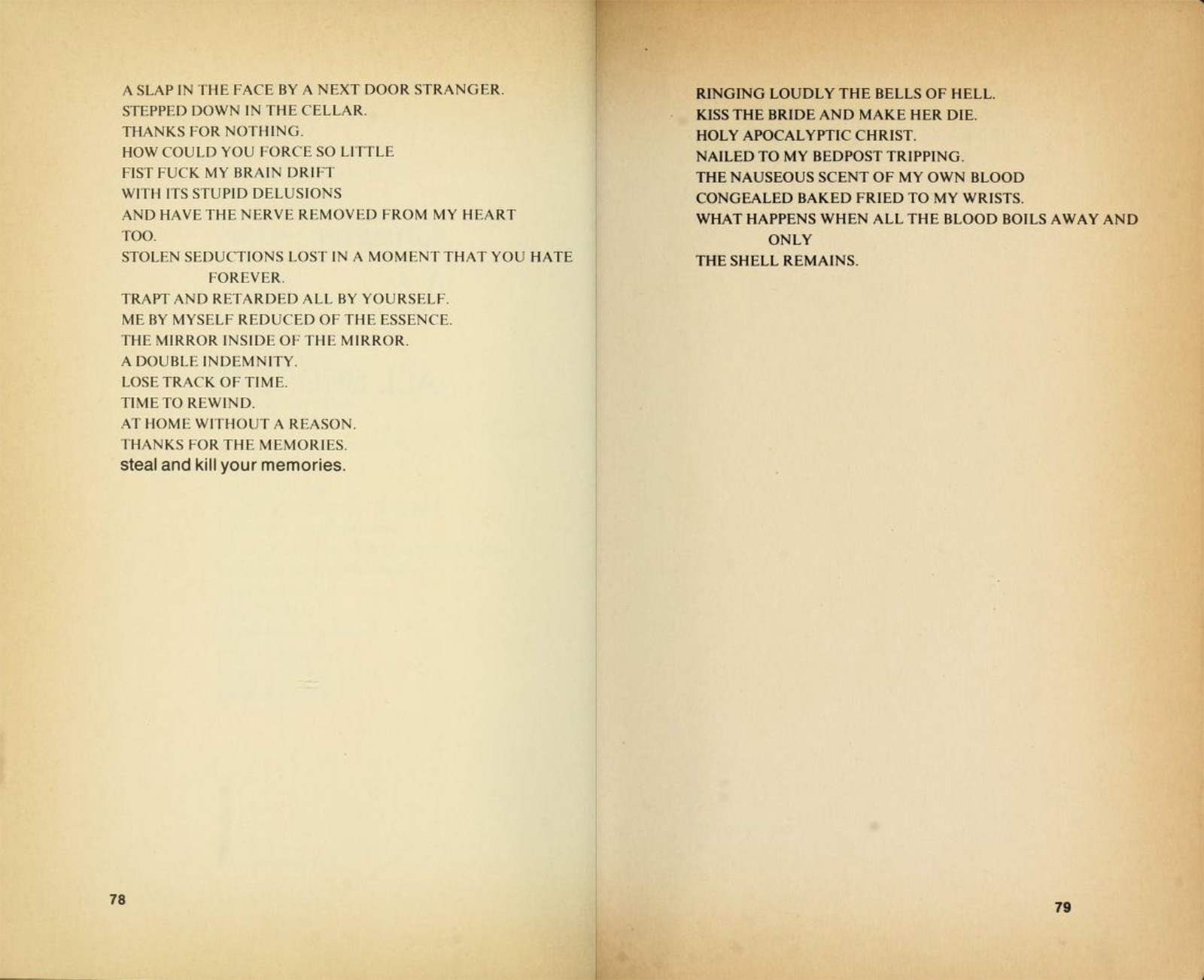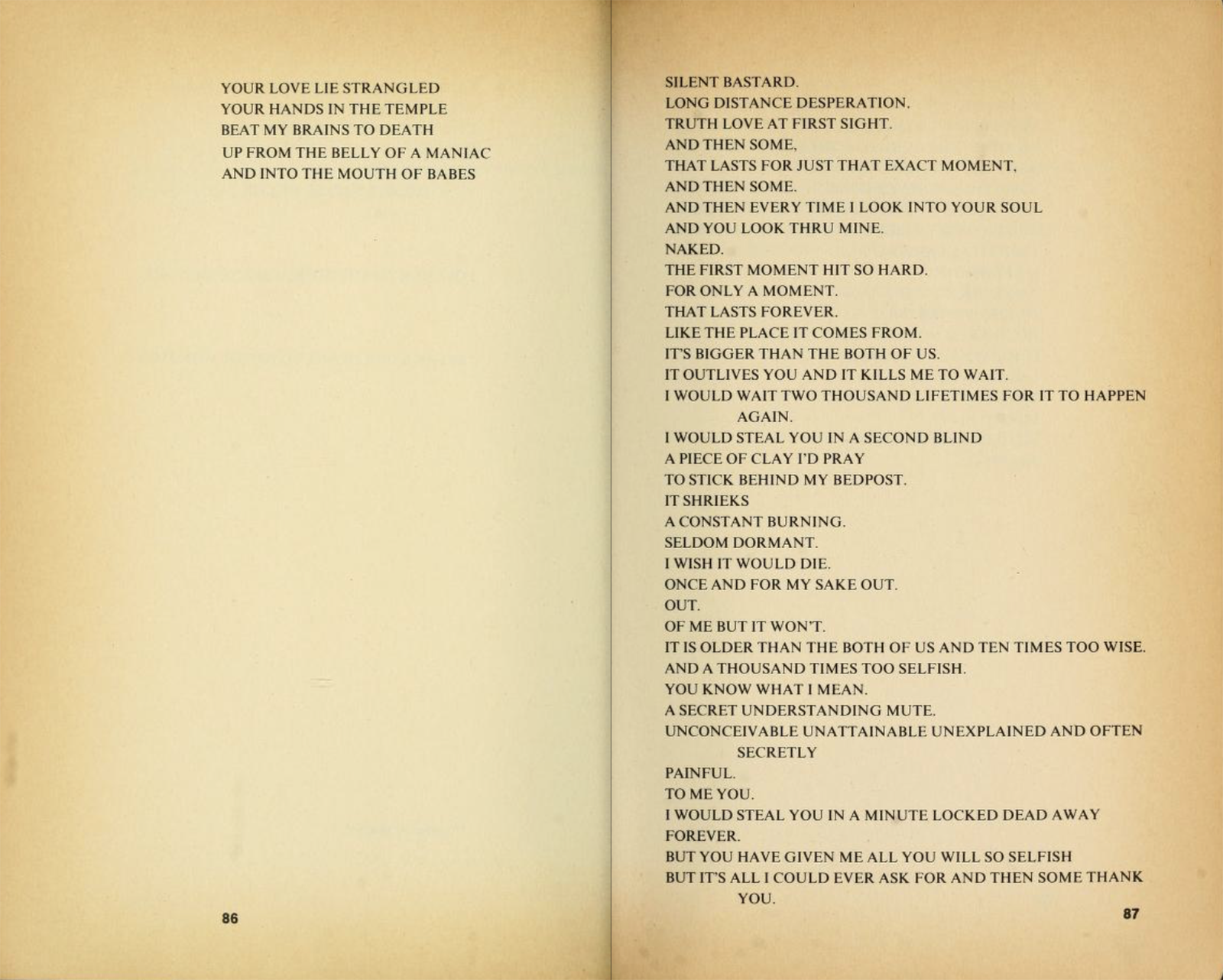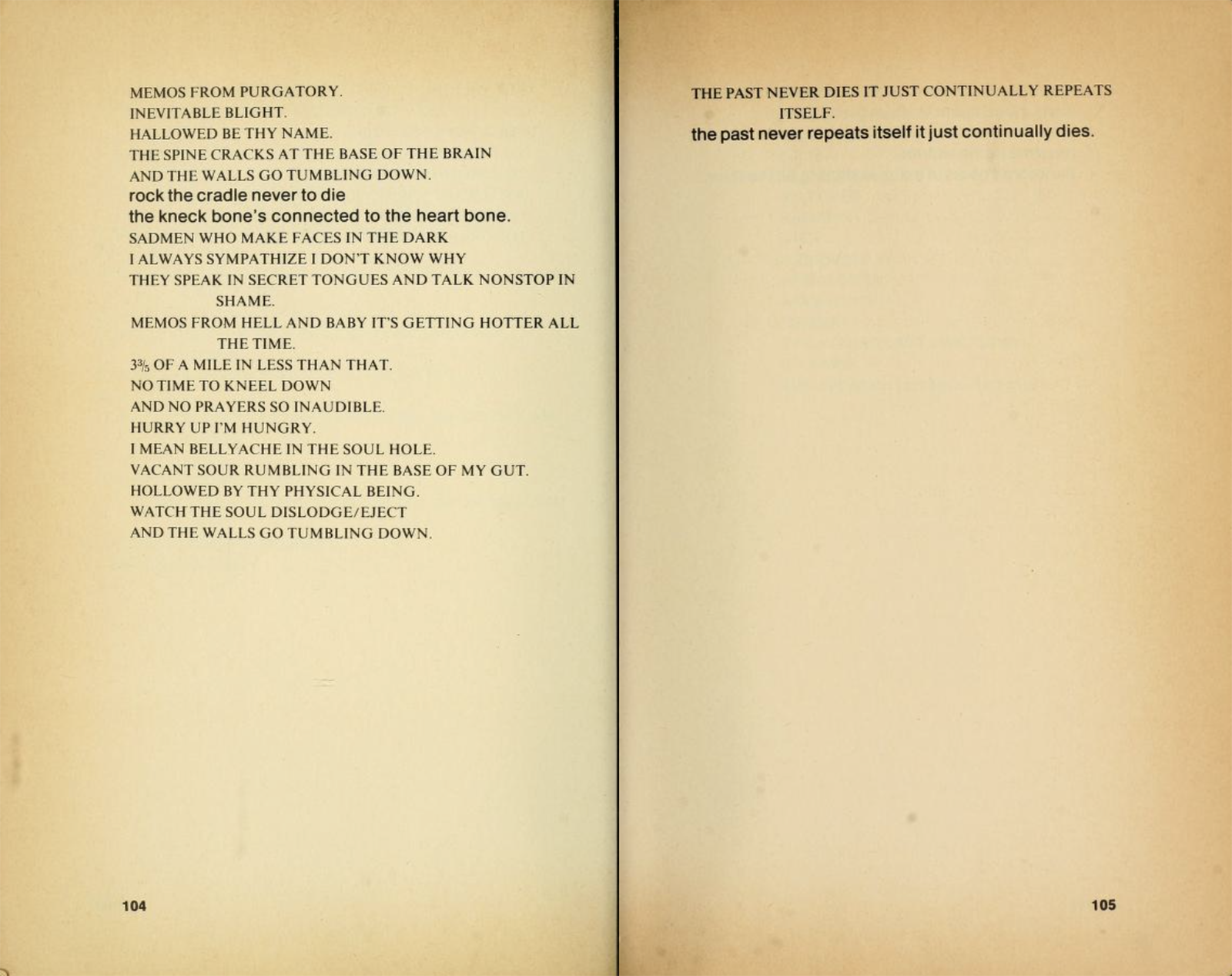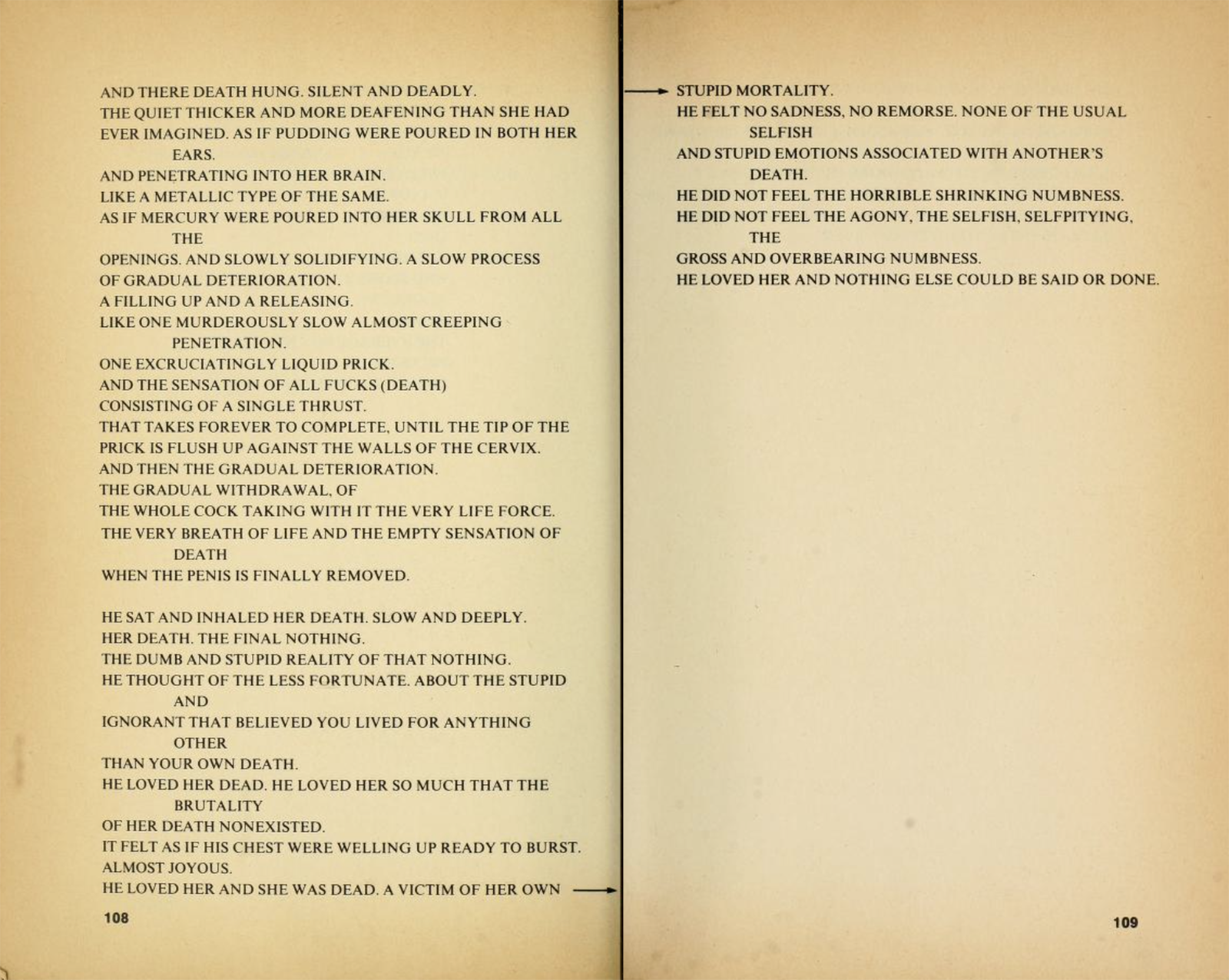Adulterers Anonymous (1982) is a soliloquy on love and on all that might be mistaken for it. Its lines have absorbed the solitude and desperation of a feeling that, even when consumed in the flesh, lingers in the body until it becomes a torture for the mind. Poetry can’t be translated into journalistic language without condemning its beauty to a prosaic dimension where it does not belong; that’s why in this piece, we have attempted to translate this collection of poems under a narrative form. Adulterers Anonymous begins with the protagonist immobilised in bed by the weight of unrequited love and ends with her receiving it just in body one last time, only to orgasmically die from it. This is the story of what came after, of that ecstatic trespassing generated between spankings and caresses.

Ryoichi Kurokawa / Synaesthetic Artfacts
Art&Culture | Interview
Kurokawa uses computers to create installations and performances in which sound and visual elements are in close connection with each other, seeking the creation of synaesthetic experiences. Considered a pioneer in the field of art generated through the use of new technologies, Ryoichi Kurokawa began his artistic career as a musician, and has maintained over the years a strong interest in the performative act. In addition to creating multimedia installations, in recent years, his interest in natural sciences has led him to establish important collaborations with the international scientific landscape.

